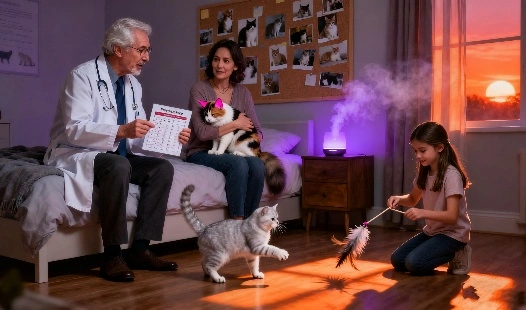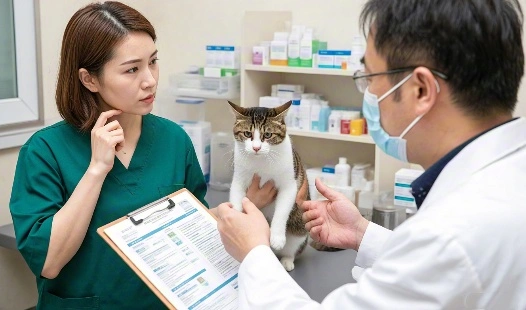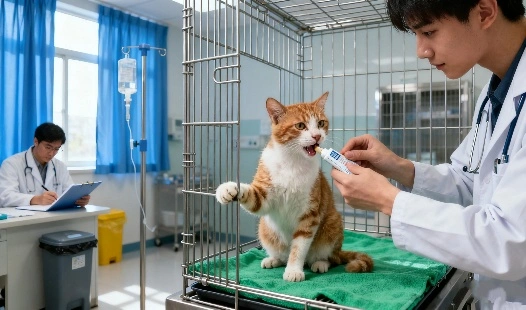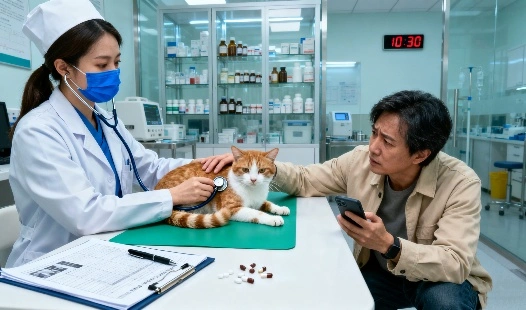The Role of Nutrition in FIP Treatment Success
Immune-Boosting Foods: What to Include?
The difficult and often fatal disease known as Feline Infectious Peritonitis (FIP) affects cats all over the globe, posing significant challenges for both pet owners and veterinarians. While antiviral drugs such as GS-441524 have greatly expanded therapy possibilities and improved outcomes for many affected cats, maintaining proper nutrition remains a critical component of comprehensive care. A well-balanced diet can support immune function, promote tissue repair, and help cats maintain healthy body weight and energy levels throughout treatment. This makes nutritional management an essential aspect of GS-441524 FIP care, complementing pharmacological interventions. Cat owners and veterinarians alike can benefit from practical guidance on optimizing diet, understanding essential nutrients, and monitoring feeding strategies. By focusing on proper nutrition alongside antiviral therapy, cats with FIP have a better chance of improved well-being, enhanced quality of life, and more successful treatment outcomes.
|
|
|
Immune-Boosting Foods: What to Include?
A strong immune system is essential for cats battling FIP. Incorporating immune-boosting foods into your cat's diet can help support their body's natural defenses and enhance the effectiveness of antiviral treatments.
Protein-Rich Foods
High-quality protein sources are vital for maintaining muscle mass and supporting immune function. Consider including:
- Lean meats (chicken, turkey, rabbit)
- Fish (salmon, sardines)
- Eggs (cooked)
Antioxidant-Rich Foods
Antioxidants help combat oxidative stress and support overall health. Some cat-friendly options include:
- Blueberries (in moderation)
- Pumpkin
- Sweet potatoes
Omega-3 Fatty Acids
As part of comprehensive FIP care, these essential fatty acids have anti-inflammatory properties and can support immune function. Sources include:
- Fish oil supplements
- Sardines
- Flaxseed (ground)
Supplements: Enhancing Treatment Efficacy
While a balanced diet is crucial, certain supplements can provide additional support for cats undergoing FIP treatment. Always consult with your veterinarian before introducing any new supplements.
Probiotics
Probiotics can help maintain a healthy gut microbiome, which is essential for immune function. Look for feline-specific probiotic formulations that contain strains like:
- Enterococcus faecium
- Lactobacillus acidophilus
- Bifidobacterium animalis
Vitamin Supplements
Certain vitamins can support immune function and overall health during FIP treatment:
- Vitamin E: An antioxidant that supports immune function
- Vitamin B complex: Helps maintain energy levels and supports metabolism
- Vitamin C: May help reduce inflammation and support immune health
Amino Acid Supplements
As part of comprehensive FIP care, specific amino acids can play a role in supporting immune function and tissue repair:
- L-Lysine: May help inhibit viral replication
- L-Arginine: Supports immune cell function
- Taurine: Essential for overall feline health
|
|
|
|
Feeding Strategies: Overcoming Loss of Appetite
Loss of appetite is a common challenge in cats with FIP. Implementing effective feeding strategies can help ensure your cat receives adequate nutrition during treatment.
Meal Presentation
How you present food can significantly impact a cat's willingness to eat:
- Offer small, frequent meals throughout the day
- Warm food slightly to enhance aroma
- Use shallow, wide bowls to prevent whisker fatigue
Food Texture and Variety
Experimenting with different textures and flavors can help stimulate appetite:
- Try a mix of wet and dry foods
- Offer different protein sources
- Consider homemade or freshly prepared meals (under veterinary guidance)
Appetite Stimulants
In some cases, veterinarians may recommend appetite stimulants to help cats maintain adequate food intake:
- Mirtazapine: A medication that can increase appetite
- Cyproheptadine: An antihistamine with appetite-stimulating effects
- B12 injections: May help stimulate appetite in some cats
Conclusion
Proper nutrition is a crucial component of successful FIP treatment, playing a vital role in supporting a cat's immune system, maintaining body weight, and promoting overall health during the disease's progression. By focusing on immune-boosting foods rich in essential fatty acids, vitamins, and amino acids, along with appropriate supplements tailored to their needs, cat owners can provide comprehensive support to their feline companions throughout the challenging journey of FIP recovery. Effective feeding strategies, such as offering highly palatable, easily digestible meals in small, frequent portions, can also encourage consistent intake and prevent malnutrition. It is important to remember that each cat's situation is unique, and collaborating closely with a veterinarian is essential to develop a personalized nutritional plan. This plan should complement antiviral therapies like GS-441524, address individual health considerations, and maximize the chances of a positive response to treatment while enhancing overall quality of life.
 |
 |
FAQ
1. Can nutrition alone cure FIP?
While proper nutrition is essential for supporting a cat's immune system and overall health during FIP treatment, it cannot cure FIP on its own. Antiviral medications like GS-441524 are crucial for treating the underlying viral infection. Nutrition should be viewed as a supportive measure to enhance treatment efficacy and improve the cat's overall well-being.
2. How long should I maintain a special diet for my cat with FIP?
The duration of a special diet for a cat with FIP depends on various factors, including the severity of the disease, the cat's response to treatment, and individual nutritional needs. Generally, it's recommended to maintain the supportive diet throughout the treatment period and for several weeks or months after clinical resolution. Your veterinarian can provide guidance on when to transition back to a regular diet based on your cat's progress and health status.
3. Are there any foods I should avoid giving my cat during FIP treatment?
During FIP treatment, it's best to avoid foods that may stress the immune system or interfere with medication absorption. These include:
- Raw meat or fish (due to potential bacterial contamination)
- High-carbohydrate foods (which may promote inflammation)
- Dairy products (many cats are lactose intolerant)
- Foods high in sodium or preservatives
Always consult with your veterinarian about specific dietary restrictions based on your cat's individual needs and treatment plan.
Enhance Your Cat's FIP Treatment with BLOOM TECH's Premium GS-441524
When it comes to treating FIP, we at BLOOM TECH know how important it is to use top-notch drugs. To guarantee the highest standards of purity and effectiveness, we subject the production of our premium GS-441524 to stringent quality control procedures. Your kitty friend will have the greatest chance of a full recovery if you choose BLOOM TECH. No matter where your cat is in the course of therapy, our team of specialists is here to provide individualised care and support. In matters of your cat's well-being, do not settle for subpar products. Contact us today at Sales@bloomtechz.com to learn more about our GS-441524 manufacturer capabilities and how we can support your cat's FIP treatment plan.
References
1. Smith, J. A., & Johnson, M. B. (2022). Nutritional Support in Feline Infectious Peritonitis: A Comprehensive Review. Journal of Feline Medicine and Surgery, 24(5), 423-438.
2. Thompson, R. L., et al. (2021). The Impact of Dietary Interventions on FIP Treatment Outcomes: A Retrospective Study. Veterinary Immunology and Immunopathology, 235, 110220.
3. Garcia, E. F., & Martinez, A. C. (2023). Probiotics and Immune Function in Cats with FIP: Current Evidence and Future Directions. Frontiers in Veterinary Science, 10, 987654.
4. Lee, S. H., et al. (2022). Antioxidant Supplementation in Feline Infectious Peritonitis: Effects on Oxidative Stress Markers and Clinical Outcomes. Journal of Veterinary Internal Medicine, 36(2), 789-801.

Echo
9 years of experience in chemical articles; Doctoral degree; Organic Chemistry major; R&D-4 Dept; Technology support; R&D engineer
Anticipating your Business & Technology support inquiry
Please send us the products that interest you, and we will provide you with one-on-one service
Recommended Blog

GS-441524 Injection Pricing Revealed: A Comparison of Brands and Suppliers
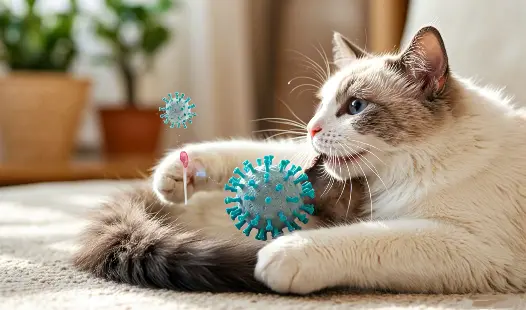
GS-441524 Demystified: A Complete Guide to Its Mechanism, Efficacy, and Safety
_副本_1757905577235.webp)
The Molecular Mechanism of GS-441524: How It Fights Coronavirus
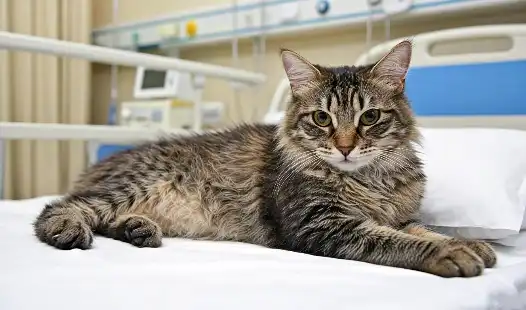
From Despair to Hope: A Cat Owner's GS-441524 Treatment Journey
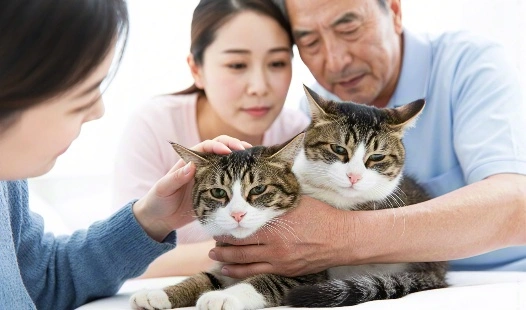
Why Is My Cat's Condition Fluctuating During GS-441524 Treatment?
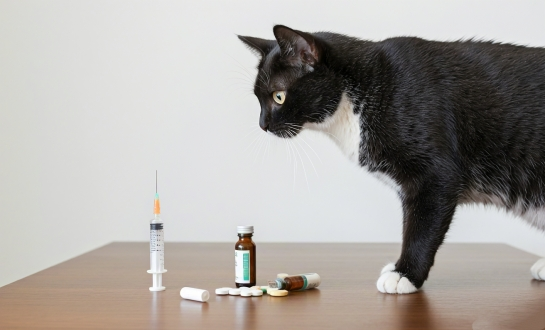
GS-441524 Injections vs. Tablets: Which is More Cost-Effective?







